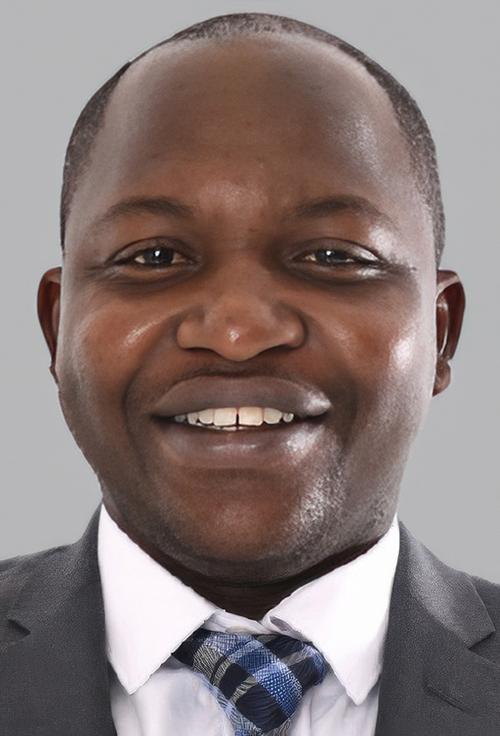But dermatologists and other cancer doctors still say AI is not ready to operate without oversight by clinical physicians
Dermatopathologists and the anatomic pathology profession in general have a new example of how artificial intelligence’s (AI’s) ability to detect cancer with accuracy comparable to a trained pathologist has greatly improved. At the latest European Academy of Dermatology and Venereology (EADV) Congress, scientists presented a study in which researchers with the University Hospitals Birmingham NHS Foundation Trust used an AI platform to assess 22,356 people over 2.5 years.
According to an EADV press release, the AI software demonstrated a “100% (59/59 cases identified) sensitivity for detecting melanoma—the most serious form of skin cancer.” The AI software also “correctly detected 99.5% (189/190) of all skin cancers and 92.5% (541/585) of pre-cancerous lesions.”
“Of the basal cell carcinoma cases, a single case was missed out of 190, which was later identified at a second read by a dermatologist ‘safety net.’ This further demonstrates the need to have appropriate clinical oversight of the AI,” the press release noted.
AI is being utilized more frequently within the healthcare industry to diagnose and treat a plethora of illnesses. This recent study performed by scientists in the United Kingdom demonstrates that new AI models can be used to accurately diagnose some skin cancers, but that “AI should not be used as a standalone detection tool without the support of a consultant dermatologist,” the press release noted.

“The role of AI in dermatology and the most appropriate pathway are debated,” said Kashini Andrew, MBBS, MSc (above), Specialist Registrar at University Hospitals Birmingham NHS Foundation Trust. “Further research with appropriate clinical oversight may allow the deployment of AI as a triage tool. However, any pathway must demonstrate cost-effectiveness, and AI is currently not a stand-alone tool in dermatology. Our data shows the great promise of AI in future provision of healthcare.” Clinical laboratories and dermatopathologists in the United States will want to watch the further development of this AI application. (Photo copyright: LinkedIn.)
How the NHS Scientists Conducted Their Study
Researchers tested their algorithm for almost three years to determine its ability to detect cancerous and pre-cancerous growths. A group of dermatologists and medical photographers entered patient information into their algorithm and trained it how to detect abnormalities. The collected data came from 22,356 patients with suspected skin cancers and included photos of known cancers.
The scientists then repeatedly recalibrated the software to ensure it could distinguish between non-cancerous lesions and potential cancers or malignancies. Dermatologists then reviewed the final data from the algorithm and compared it to diagnoses from health professionals.
“This study has demonstrated how AI is rapidly improving and learning, with the high accuracy directly attributable to improvements in AI training techniques and the quality of data used to train the AI,” said Kashini Andrew, MBBS, MSc, Specialist Registrar at University Hospitals Birmingham NHS Foundation Trust, and co-author of the study, in EADV press release.
Freeing Up Physician Time
The EADV Congress where the NHS researchers presented their findings took place in October in Berlin. The first model of their AI software was tested in 2021 and that version was able to detect:
- 85.9% (195 out of 227) of melanoma cases,
- 83.8% (903 out of 1078) of all skin cancers, and
- 54.1% (496 out of 917) of pre-cancerous lesions.
After fine-tuning, the latest version of the algorithm was even more promising, with results that included the detection of:
- 100% (59 out of 59) cases of melanoma,
- 99.5% (189 out of 190) of all skin cancers, and
- 92.5% (541 out of 585) pre-cancerous lesions.
“The latest version of the software has saved over 1,000 face-to-face consultations in the secondary care setting between April 2022 and January 2023, freeing up more time for patients that need urgent attention,” Andrew said in the press release.
Still, the researchers admit that AI should not be used as the only detection method for skin cancers.
“We would like to stress that AI should not be used as a standalone tool in skin cancer detection and that AI is not a substitute for consultant dermatologists,” stated Irshad Zaki, B Med Sci (Hons), Consultant Dermatologist at University Hospitals Birmingham NHS Foundation Trust and one of the authors of the study, in the press release.
“The role of AI in dermatology and the most appropriate pathway are debated. Further research with appropriate clinical oversight may allow the deployment of AI as a triage tool,” said Andrew in the press release. “However, any pathway must demonstrate cost-effectiveness, and AI is currently not a stand-alone tool in dermatology. Our data shows the great promise of AI in future provision of healthcare.”
Two People in the US Die of Skin Cancer Every Hour
According to the Skin Cancer Foundation, skin cancer is the most common cancer in the United States as well as the rest of the world. More people in the US are diagnosed with skin cancer every year than all other cancers combined.
When detected early, the five-year survival rate for melanoma is 99%, but more than two people in the US die of skin cancer every hour. At least one in five Americans will develop skin cancer by the age of 70 and more than 9,500 people are diagnosed with the disease every day in the US.
The annual cost of treating skin cancers in the United States is estimated at $8.1 billion annually, with approximately $3.3 billion of that amount being for melanoma and the remaining $4.8 billion for non-melanoma skin cancers.
More research is needed before University Hospitals Birmingham’s new AI model can be used clinically in the diagnoses of skin cancers. However, its level of accuracy is unprecedented in AI diagnostics. This is a noteworthy step forward in the field of AI for diagnostic purposes that can be used by clinical laboratories and dermatopathologists.
—JP Schlingman
Related Information:
AI Software Shows Significant Improvement in Skin Cancer Detection, New Study Shows


